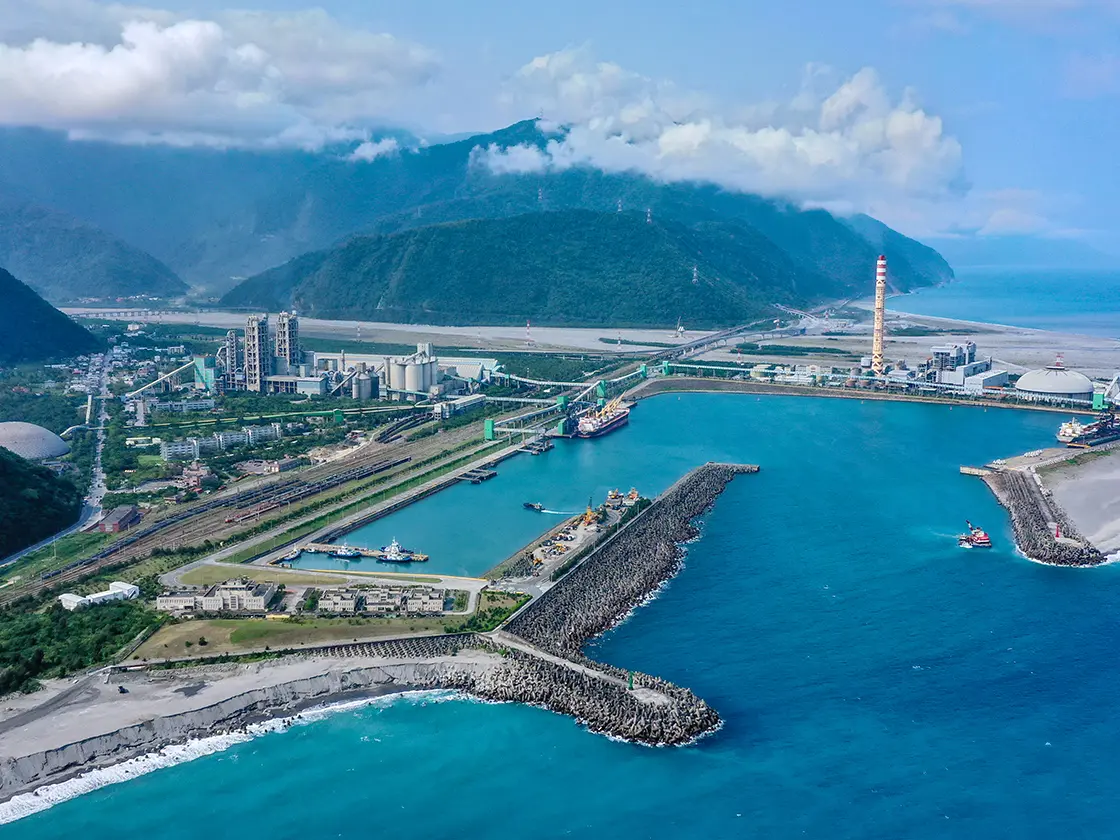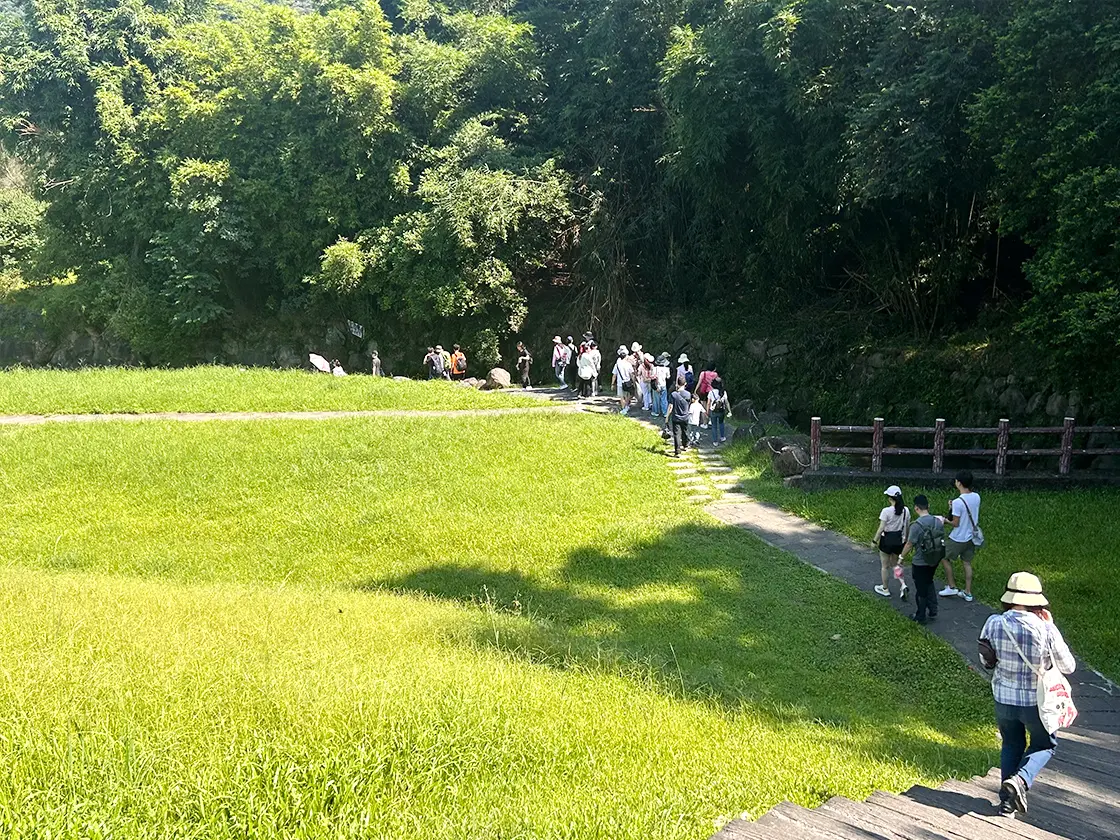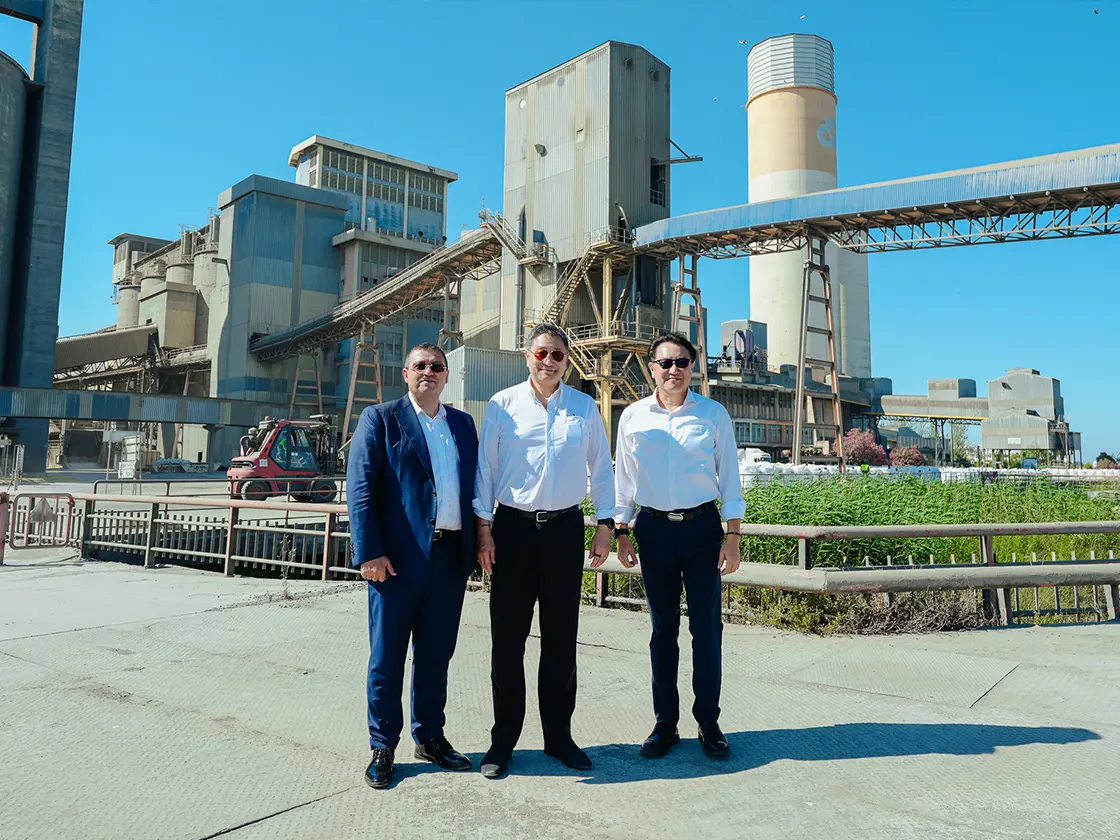The Pulse of Future Architecture: How Low-Carbon Materials Empower the Construction Industry
- Home
- Sustainable E-newsletter
- The Pulse of Future Architecture: How Low-Carbon Materials Empower the Construction Industry
Environmental 2024 Vol.03
The Pulse of Future Architecture: How Low-Carbon Materials Empower the Construction Industry
- #Low-Carbon Construction Materials
-
Since October 2023, when TCC launched the “Total Climate” low-carbon materials, nearly a hundred construction and development brands across Taiwan have joined the low-carbon materials initiative. We invited these partners, who value carbon competitiveness, to share their insights on the low-carbon future of the construction industry.

Key Issue in the Construction Industry: Carbon Reduction
In response to global climate change, a wave of sustainability is sweeping the world, and Taiwan is no exception. In addition to changing operational mindsets, achieving a balance with the natural environment has been increasingly emphasized.
The construction and infrastructure sectors generate significant carbon emissions during the building process. According to United Nations statistics, the building and construction industry accounts for nearly 40% of global carbon emissions. Therefore, to achieve a win–win situation for both environmental and economic benefits, carbon reduction measures in the industry will be crucial.

The application of low-carbon building materials has become one of the solutions for carbon reduction in the construction industry.
In the world of building structures, cement and concrete have always been seen as the cornerstones of stability. The strength and durability of these two materials are key to ensuring building safety.
Looking at the lifecycle of a building, cement and concrete account for 20% of total carbon emissions. These data remind us that the role of building materials in environmental issues cannot be ignored. As the demand for carbon reduction increases, the construction industry faces the challenge of finding alternative solutions that can reduce carbon emissions without compromising structural safety.
Whether in residential buildings or commercial office towers, this struggle among strength, durability, and carbon emissions will reshape the future of our architecture.
For this reason, TCC, standing at the forefront of technological innovation, has continuously invested in and developed changes from raw materials to manufacturing processes, launching the green formula known as the “Total Climate” series. This includes the brand’s low-carbon cement, Portland Limestone Type IL Cement, and its low-carbon concrete, Portland Limestone Type IL Cement Concrete.
Taking low-carbon concrete as an example, TCC's carbon reduction results are significant, with a 15.4% reduction in carbon emissions compared to the 2016 baseline. Notably, the quality of low-carbon materials has not been compromised; instead, they perform better than traditional materials in various aspects. TCC starts with its own carbon reduction efforts, providing construction industry players with material choices that meet engineering needs while reducing environmental burdens.
By taking concrete actions to promote the green transformation of the construction industry, TCC makes the low-carbon future not just a vision, but a tangible reality.
Chung Li Construction: Continuously Doing the Right Thing to Spread Goodness
With the expansion of the Taipei–Keelung–Taoyuan living circle, Taoyuan County has continued to attract population inflows in recent years, further driving the growth of housing demand. Chung Li Construction in Taoyuan was founded by a group of passionate building enthusiasts, with the initial intention of "doing the right thing and doing it well."

The origin of their cooperation actually started at the end of 2023 at the TaiPei Building Show. TCC's innovative low-carbon technology and product features on display attracted the attention of many construction industry players. Chung Li Construction's General Manager Steven Chiu mentioned that, to create "aesthetic and safe homes," the company adheres to five core values, including innovation and safety. For their company, using TCC's low-carbon "Total Climate" series not only ensures structural safety, but also brings innovative thinking to consumers and projects.
"It's no longer about simply using the cheapest materials and pursuing the highest profits. Now, choosing concrete means considering quality and reducing carbon emissions simultaneously. This is the real breakthrough, truly fulfilling the company's mission."
"We insist on using the right mix for concrete, without compromise," General Manager Steven Chiu further explained. "Before confirming its use, we conducted multiple cautious trial mixes with the factory. The results showed performance even better than expected, which strengthened our confidence in choosing TCC's low-carbon materials."
Strict quality control in shipments and the provision of strength data reports have earned the full trust of customers. This persistence allows TCC to steadily advance along the path of promoting low-carbon transformation.
DA-YI CONSTRUCTION & DEVELOPMENT: Consistent Persistence
From being a cement developer to now being a developer of low-carbon construction materials, resource recycling, and green energy, TCC has grown over the past six decades along with its many customers.
DA-YI CONSTRUCTION & DEVELOPMENT is a typical representative among them.
Deeply rooted in Taichung for more than twenty years, DA-YI has built countless homes for happy families, earning many loyal customers who "support DA-YI" with its high-quality engineering. They have consistently used TCC products.
"The initial idea was simple: to give our consumers peace of mind,” said General Manager Shun in a firm tone, his gaze sweeping over the photos of classic cases on the transparent wall of the office. "This original intention drives us to choose the leading brands and products in the market."
Pointing to the photos on the wall, General Manager Shun said these buildings are testaments to DA-YI's efforts and innovations along the way. Most importantly, they reflect the recognition and feedback from residents. "This is what we care about the most."

His words reveal the importance of quality and customer trust, highlighting DA-YI's persistence and vision in material selection.
DA-YI understands its market position and actively promotes the concept of sustainable development, from material selection to construction methods to community management, responding positively.
"A few years ago, when we first encountered terms like 'low-carbon' and 'sustainability,' it seemed like a distant future," recalled General Manager Shun. "However, with the implementation of ESG and construction site regulations, it is clear that low-carbon building materials are gradually becoming a trend." He mentioned that now they always recommend customers to prioritize TCC's ready-mix plants if available nearby.
General Manager Shun also mentioned TCC's stability in management and material scheduling, as well as the intensive visits and tracking of shipment status by project business teams, further deepening the long-term cooperation between the two parties.
Chen Mei Land Development Group (Ju Cai Co. Ltd): Proactively Becoming a Carbon Reduction Pioneer
With changes in industry and population structure, coupled with news of several tech giants planning to set up factories, the southern housing market has become active again in recent years. Chen Mei Land Development Group (Ju Cai Co. Ltd), as a local brand in the south, feels this change deeply. The past residential model of mainly townhouses has now shifted to high-rise communities, with increasing demands for living quality.

General Manager Tim Weng has a clear vision for this, hoping to infuse new elements into buildings from various aspects. "As long as it can improve the quality of life for residents, my team and I will go all out," he said. This relentless pursuit of improving building quality reflects Chen Mei's focus and commitment. Every detail and decision are a meticulous carving for a better future living.
General manager assistant Robert Chiu also shared, "In the process of material transition, whether it’s carbon tax, carbon inventory, or carbon emission calculations in the construction industry, the core lies in policy changes. This year, we set a goal to quickly align with these trends, considering the long-term impact for residents in advance."
In the transition to low-carbon materials, they believe that instead of passively responding to future challenges, it is better to proactively become pioneers and take action early.
General Manager Weng mentioned that, "in the construction industry, the choice of low-carbon materials is often passive because the decision-making power for carbon reduction mainly lies with material suppliers.” However, “what we can do is integrate various low-carbon building materials into architectural design to ensure their durability, such as choosing TCC." They emphasized that their commitment to the concept of sustainable architecture keeps them proactive, aligning closely with TCC's low-carbon goals, which is their true commitment to a beautiful vision of future architecture.
San Far Property Limited: Building is Not a Simple Matter, and Environmental Sustainability is Even More Challenging
Founded in 1993, San Far Property Limited is one of the few construction companies in the industry that operates in the arts and culture sector. They uphold the humanistic spirit of "caring for society and valuing the environment" and deeply embed it in their mission of "building safe and prosperous buildings."
When buying a house, most people consider visible factors such as the building's appearance, home amenities, and advertisements. However, the intangible factors, such as using low-carbon materials in the structure, waterproofing engineering efforts, or seeking third-party certification like SGS, are often more critical. Although not easily noticeable, these factors have a profound impact on the quality of the building.
"I encourage consumers and readers of TCC's sustainability e-newsletter to delve into our construction industry’s persistence and practices in construction. This way, we have the opportunity to promote developers who truly focus on sustainable development. They won’t just rely on advertising budgets to promote projects but will showcase what professionalism is through real skills and details," said Chairman Owen Chung.

Talking about why they have long chosen TCC products, General Manager Jeff Yang said, "Choosing a top brand in the market gives us peace of mind because there is no chance of cutting corners on quality." Chairman Chung also shared that the professional division of labor and doing what is right in front of them, while continuously planning suitable buildings and products for the environment, is the core concept of promoting sustainable development.
"This is why low-carbon building materials in particular resonate with us. We hope to prioritize these materials and convey the correct values of sustainability to consumers and society." This year, low-carbon concrete is not only applied in general high-rise residential projects, but also in San far’s first commercial office building, which also chose TCC's low-carbon concrete.
"Innovation certainly comes with risks, but we cannot shrink back because of it." San Far Property Limited upholds this belief, expecting to lead by example while working with TCC to promote industry growth and become a strong driving force for sustainable development.
When sustainability has become the consensus, TCC's low-carbon materials are drawing a new industry blueprint.
TCC GROUP HOLDINGS
SUSTAINABLE E-NEWSLETTER.










